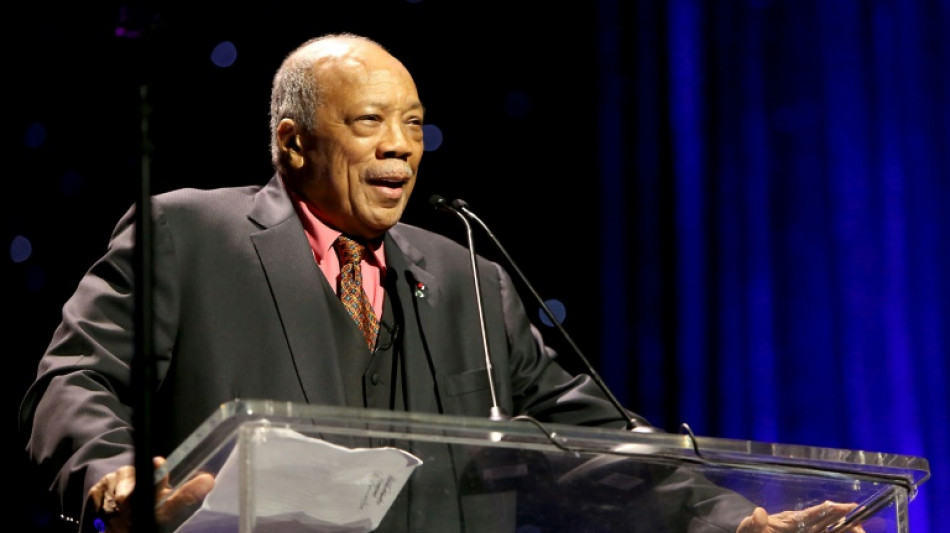
RIO
0.5700


Music industry titan Quincy Jones, who produced some of Michael Jackson’s best-known albums and collaborated with legends including Frank Sinatra and Count Basie, passed away at age 91, US media reported Monday.
His death was confirmed by his publicist, Arnold Robinson, in a statement that did not specify a cause, US media reported.
A jazz musician, composer and tastemaker, his studio chops and arranging prowess connected the dots between the 20th century's constellation of stars.
From Frank Sinatra to Michael Jackson, jazz to hip-hop, Jones tracked the ever-fluctuating pulse of pop over his seven-decade-plus career -- most often manipulating the beat himself.
Born in 1933 in the south side of Chicago, Quincy Delight Jones Jr. discovered a knack for the piano at a recreation center and became teenage buddies with Ray Charles.
Jones briefly studied at the Berklee College of Music in Massachusetts before joining bandleader Lionel Hampton on the road, eventually relocating to New York, where he gained attention as an arranger for stars including Duke Ellington, Dinah Washington, Count Basie and, of course, Charles.
He played second trumpet on Elvis Presley's "Heartbreak Hotel," teaming up with Dizzy Gillespie for several years before moving to Paris in 1957, where he studied under the legendary composer Nadia Boulanger.
Jones later expanded into Hollywood, scoring films and television shows.
Among entertainment's most decorated figures, Jones won virtually every major achievement award, including 28 Grammys.
In 1967, Jones was the first Black composer to be nominated in the original song category of the Oscars, for the film "Banning."
Jones started a label, founded a hip-hop magazine, and produced the 1990s hit television show "The Fresh Prince of Bel-Air," discovering Will Smith.
He also wrote his own hits, like the addictively cacophonous "Soul Bossa Nova," while also arranging at a breathless pace for dozens of stars across the industry.
But he was perhaps best known as the producer of Michael Jackson's albums "Off the Wall", "Thriller" and "Bad".
"You name it, Quincy's done it. He's been able to take this genius of his and translate it into any kind of sound that he chooses," jazz pianist Herbie Hancock told PBS in 2001.
"He is fearless. If you want Quincy to do something, you tell him that he can't do it. And of course he will -- he'll do it."
M.McCoy--TFWP